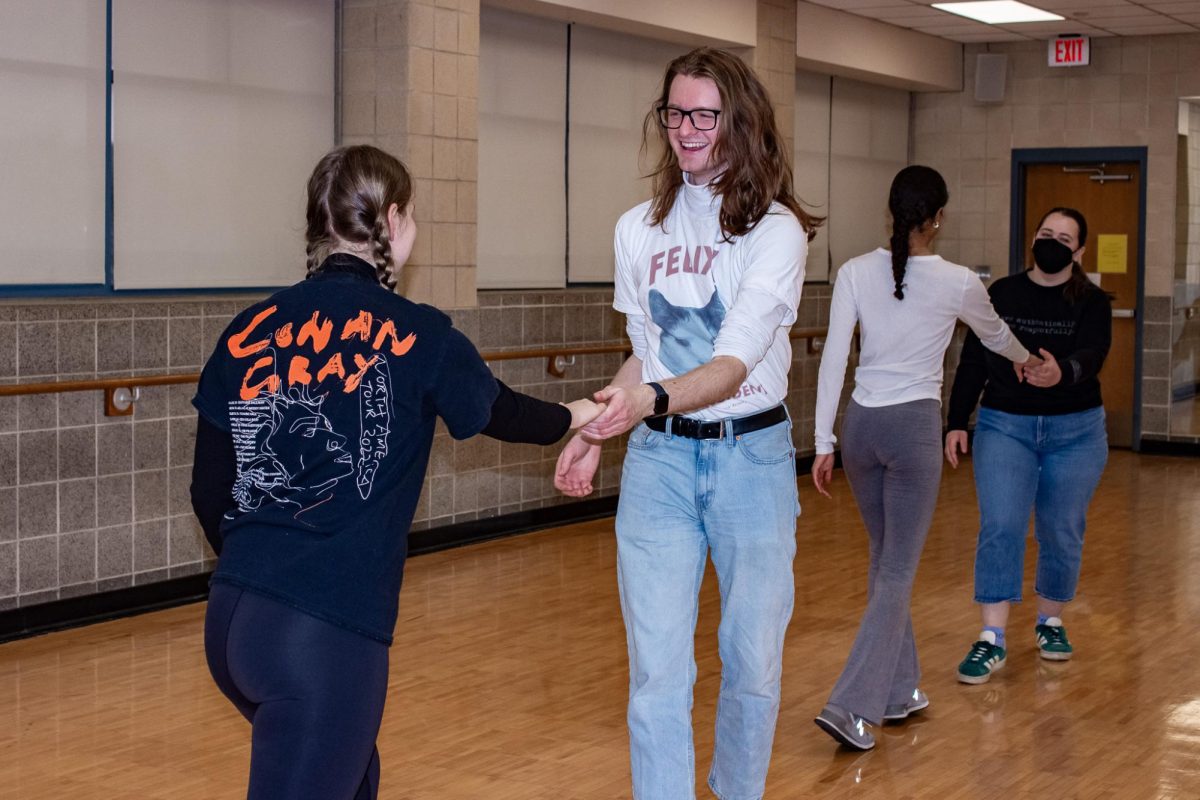This spring’s Theater for Social Change course is working to help eliminate three social problems and forms of oppression: slut-shaming, drunk driving and depression.
Through the formats of visual, invisible and forum theater, the class of five students is gaining valuable tools for stepping up and solving real life issues through theater principles and methods.
“The whole objective is a rehearsal for life. Often we do see situations where there is a form of oppression in real life and we do not know what to do. So in a way, in this class we have the opportunity to practice what action we can take in order to change the outcome of oppression and hopefully eliminate oppression,” said Roberto Prestigiacomo, associate professor of human communication and theatre.
The five students brainstormed a list of issues and topics they wanted to address over the course of the semester and chose their three topics because they are issues not often talked about.
Part one of three was a visual theater display in which the class staged photos of slut-shaming and then other photos with an idealized situation in which people are stepping in to prevent the oppression of women judged for their sexual behaviors.
Invisible theater, the second of the three projects, aimed to take away the visibility of the theater by performing in public without anyone knowing it was all a performance in order to tackle the issue of drunk driving.
The class staged scenes at several restaurants of women attempting to drive drunk and see if any strangers in the public would intervene.
“I think I’ve become more aware of different issues that I see. I’ve become more adept at thinking about ways to take action and, more importantly, I’ve become more comfortable with taking personal action,” said Katie Farrell, sophomore and human communication and theatre double major.
The biggest project of the course is part three, a forum theater performance, where the students are conducting a campaign to raise awareness of depression and collect stories from students about their experiences with depression. Lastly, they will put on a performance to brainstorm ideas of how to solve the problem and allow the audience to interact and perform with them.
“This project is pretty unique compared to our other ones, of slut-shaming and drunk driving, since they are obvious problems, whereas depression is often hard to identify. Most people don’t see depression as a problem,” said Abby Stigler, sophomore and communication major.
A Facebook page and flyers around campus encourage students to share their stories about depression and know that it is OK to seek help.
The class allows all Trinity students to anonymously submit stories to form the basis for their forum theater performance.
“The beautiful thing about forum theater is not only do we get the chance to practice, but in our practicing we get the chance to invite other people to join the experience and to come up and see how they would change what is going on,” Farrell said.
Theater for Social Change has been offered every spring semester for seven years, and the issues discussed vary based on student interest.
“Ultimately, the objective of this forum theater is to take a topic that people don’t like to talk about and bring it to their attention and telling people it is OK to talk about it and if we do talk about it then we have more information about it. We will have the tools to help our community deal with depression by creating this platform for dialogue in action,” Prestigiacomo said.
The forum theater performance tackling the issue of depression will be 7-9 p.m. on Thursday, April 30, in the Attic Theater. All students can attend and are encouraged to participate if they feel comfortable doing so.






